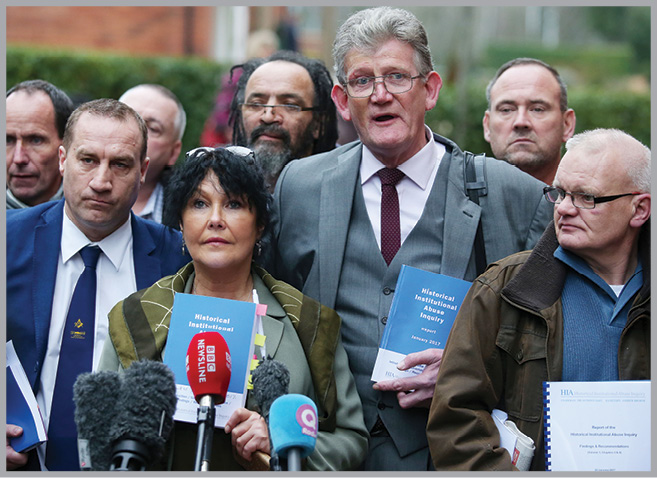Victims and survivors “vindicated”


A failure to establish a Stormont Executive post-election will impose serious delays on the facilitation of redress for victims and survivors of historical abuse.
Days before Anthony Hart published his long-awaited Historical Abuse Inquiry report, Survivors and Victims of Institutional Abuse (SAVIA) campaigner Margaret McGuckin summed up the mood among many of those who endured a lifetime of pain. As they watched Stormont implode she said: “People are feeling let down, they couldn’t look after us when we were children and they are not looking after us now.”
After the publishing of the report on 20 January the tone was equally sombre. On one hand victims felt “vindicated” by the report’s findings, but on the other hand, they realised that their entitlement to redress faced further hurdles due to the absence of a Stormont Executive.
Upon publishing the 2,300 page, 12 volume report, Anthony Hart, who oversaw the inquiry into the physical, emotional and sexual abuse and childhood neglect which occurred in many of the 22 residential institutions investigated over a 73-year period up to 1995, acknowledged “significant delay” that would be cause to implementing his recommendations, but urged the incoming politicians to give them effect “as a matter of priority”.
Among the recommendations, too detailed to list in full, include:
- a public apology by the Northern Ireland Executive and the institutions investigated;
- a memorial at Parliament Buildings or within Stormont Estate;
- the establishment of a funded Commissioner for Survivors of Institutional Childhood Abuse (COSICA) and advisory panel;
- ring-fenced funding for specialist care and assistance;
- the establishment of a publicly funded compensation scheme to administer a lump sum payment to victims; and
- the establishment of a Historic Institutional Abuse Redress Board to receive and process applications for, and making payments of, compensation.
The major findings of the report outlined that the crimes of serial sex attacker Brendan Smyth were ignored to protect the public image of the Church and that a scheme for sending child migrants from institutions to Australia after the Second World War was “gravely defective”. There was however no credible evidence that the security services were complicit in exploitation of sex abuse at Kincora boys’ home in East Belfast or that prominent establishment individuals were involved.
Upon the release of the report, which was the subject of two and a half years of public hearings, a number of groups, whose members had responsibility for running the homes, issued apologies. These included the De La Salle Brothers, the Sisters of Nazareth Order and the Sisters of St Louis.
Archbishop of Armagh, Eamon Martin said he was “ashamed” and “truly sorry” following the findings. “I know well that my words are inadequate in attempting to address the enormity of the harshness and brutality which many innocent children experienced. There is never an excuse for the abuse and ill treatment of children or any vulnerable person, in any setting.
“When the perpetrator is a priest or religious, it is also an appalling betrayal of sacred trust. I am ashamed and I am truly sorry that such abuse occurred, and that in many cases children and young people felt deprived of love and were left with a deep lasting suffering.”
Speaking after the release of the report, Margaret McGuckin said the findings would never erase the suffering felt by so many as children but, added that, for once, they hadn’t been let down.





